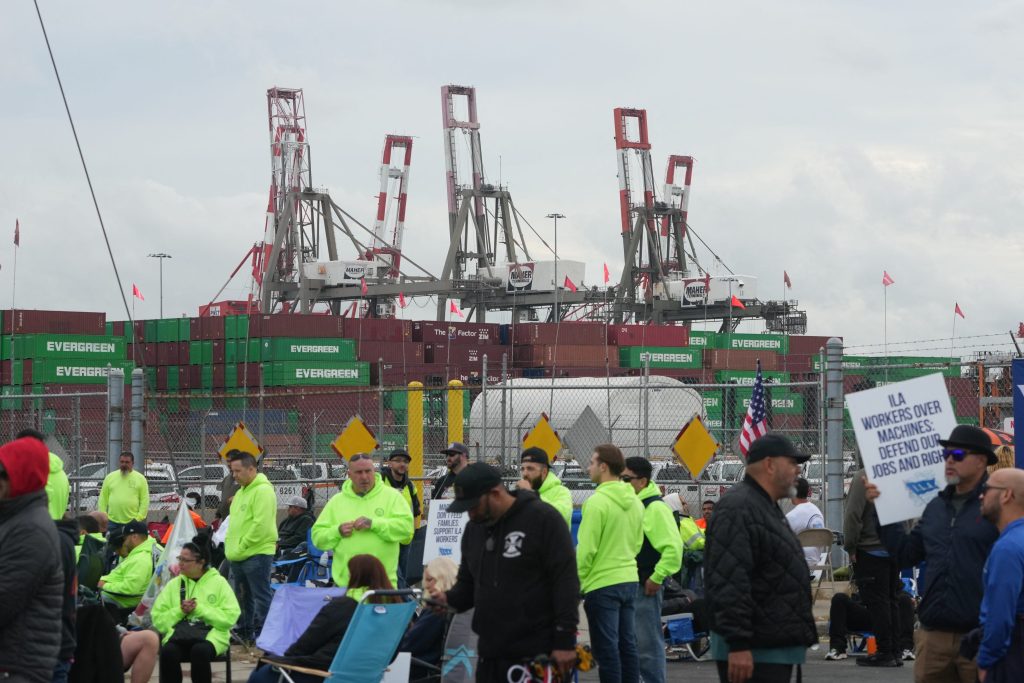Almost 25,000 dockworkers at various ports along the East and Gulf Coasts are on strike, marking the first such strike in almost 50 years. The International Longshoremen’s Association is asking for higher pay and protections from having their jobs automated. The union blames the United States Maritime Alliance for blocking an agreement to end the strike. West Coast ports have not been affected as a different union represents its workers, and they negotiated wage increases back in 2023.
The wages negotiated by the West Coast dockworkers union are one of the reasons for the current strike. ILA workers make significantly less than their counterparts, with starting pay for dockworkers at $20 per hour. The ILA is demanding a 77% increase over the duration of the contract, with workers potentially making up to $69 per hour in the final year. The U.S. Maritime Alliance proposed a smaller increase of nearly 50%, which the ILA rejected. The current top wage amounts to about $81,000 per year, but some longshoremen make $200,000 or more a year. However, workers may work up to 100 hours a week.
The ILA president, Harold Daggett, emphasized the extreme hours that many workers put in, sacrificing time with their families. The union believes in the value that its members bring to the industry and the nation. The average U.S. salary was about $59,000 in the fourth quarter of 2023, according to the U.S. Bureau of Labor. The strike has affected 14 ports in the East and Gulf Coast, with workers demanding fair compensation for their labor and the protections they need to ensure their jobs are secure in the face of automation.
In a statement, the union emphasized that the ocean carriers represented by the USMX want to enjoy rich profits while offering ILA Longshore Workers an unacceptable wage package. The ILA is fighting for the wages they deserve and believes that their members’ contributions to the industry are invaluable. The strike has brought attention to the disparities in pay between different dockworker unions and the challenges faced by workers who put in long hours to support their families. The outcome of the strike will have implications for the future of labor negotiations in the industry and the treatment of workers in essential roles.













